If you live in Pudsey, Leeds, and your child loves chess—or even if they’re just curious about it—you’re in the right place. This guide is for parents like you who want the best coaching and support for their child. Chess is more than just a game. It builds smart thinking, patience, focus, and confidence. It helps kids do better at school, stay calm under pressure, and make good choices.
Online Chess Training
Landscape of Chess Training in Pudsey and Why Online Chess Training is the Right Choice
Pudsey is a lovely town in Leeds. It’s full of parks, schools, and families who care about giving their kids the best future. Many parents in Pudsey want their children to learn chess because they know it helps with school, thinking, and even friendships. But here’s the thing—there aren’t many structured chess coaching programs in Pudsey.
Most of the local options are chess clubs in schools or community centers. These clubs are great for fun, but they don’t follow a step-by-step plan. Your child might learn a few tricks here and there, but they won’t grow fast or with full support.
Offline chess training also depends a lot on where you live. What if the only good coach is far away? What if the time doesn’t fit your family’s schedule? What if your child misses a lesson and has no way to catch up?
That’s why online chess training is a game-changer.
When your child learns chess online, they can study from home. No traffic, no rushing around. They can learn with a world-class coach, no matter where that coach lives. Online training also means your child gets access to recordings, practice games, and support 24/7. It’s like having a chess school in your living room.
But not all online schools are the same. Some just put your child in a big group and teach random lessons. Others use old videos with no live help. This is where it’s important to pick a school that is interactive, personal, and clear with its plan.
That’s exactly what the Global School of Chess offers.
How Global School of Chess is The Best Choice When It Comes to Chess Training in Pudsey
We know what your child needs to grow in chess—and in life.
At the Global School of Chess, every student gets:
- Live classes led by FIDE-certified coaches (FIDE is the world’s chess body).
- A clear, level-based curriculum so they always know what’s next.
- Personal attention in small groups or one-on-one lessons.
- Friendly tournaments every two weeks so they can play, win, and grow.
- Feedback after every game to help them improve fast.
- A warm, global chess community of students just like them.
What makes us even more special is that we teach more than just moves. We help your child build focus. We teach them how to think before they act. We help them stay calm under pressure and make smart choices, not just in games, but in everyday life.
Our classes are fun, engaging, and full of heart. We don’t use big words or boring talks. We break things down so every child understands—step by step.
We’ve seen shy kids become confident. We’ve seen scattered thinkers become sharp problem-solvers. And we’ve seen our students win tournaments—and hearts—all over the world.
And yes, we offer a free trial class, so you and your child can see what it’s like before you sign up. You can book one right now at https://gschess.com/take-a-free-trial-class
If you live in Pudsey, there really is no better choice than Global School of Chess. You get expert training without having to leave your home. You get a plan. You get results.
And most of all, your child gets to grow into the best version of themselves.
Offline Chess Training
Offline chess training is how most people first learned chess years ago. You’d go to a community hall or a school room, sit with a group of other kids, and a coach would teach you face-to-face. It can still work, especially if the coach is good and there’s a small number of students.
Some offline chess classes happen in after-school clubs. Others take place in local libraries or sports centers. They usually run once a week and last about an hour. For many families, it sounds great at first—you drop off your child, they learn something, and you pick them up.
But here’s the honest truth: it’s not enough.
Chess is a deep, rich game. It needs more than a once-a-week club to help your child truly grow. Most offline programs don’t follow a clear learning path. They often repeat the same basic lessons or jump from one topic to another without any plan.
One week your child learns how to move a bishop. The next, they might watch others play without understanding what’s happening.
Offline coaching also has limits. If your child is sick or misses class, there’s usually no recording or way to catch up. And if the group is too big, they don’t get the attention they need. Worse, if your child is already good at chess, they might feel bored. And if they’re new, they might feel lost.
It’s not that offline coaches don’t care—they do. But the format just doesn’t give them the tools to reach every child, every time.
Now let’s talk about the bigger issues.
Drawbacks of Offline Chess Training
Offline chess training has been the traditional go-to for years. It has charm. It’s face-to-face. It can be social. But it’s also full of silent struggles that many parents and education leaders overlook until it’s too late.
If you’re considering offline chess training—either for your child or as part of an educational program—here are deeper, often unseen drawbacks that you need to be aware of. These are not just limitations—they are growth blockers.
Hidden Costs that Don’t Show on the Brochure
When you sign up for a local chess class, the cost may seem reasonable. But add in transportation, parking, missed sessions, snacks, gear, and even lost time—and suddenly it’s not so cheap.
For busy parents and schools working within a budget, this becomes a drain over time.
Actionable Tip: Run a quick cost comparison. Count not just tuition, but all the side expenses. Compare that to the all-in-one pricing of a top online program. The difference might surprise you.
No Centralized Progress Tracking
Most offline academies don’t use any kind of student management software. There’s no scoreboard for growth. Parents often ask: “Is my child improving?” The answers are vague. “He’s doing okay” or “She seems to enjoy it.” That’s not enough when you want structured development.
Actionable Tip: Ask any offline chess class how they track progress. If they don’t offer report cards, skill milestones, or regular performance reviews—walk away.
No Replay Button for Missed Moments
Life happens. Kids get sick. There’s homework. Family travel. In offline classes, a missed session is a missed opportunity. The lesson is gone. The class moves on. Your child is left behind.
In contrast, online lessons can be recorded. Students can catch up anytime. That’s real flexibility.
Actionable Tip: Ask offline coaches if you can observe classes remotely, record them, or request summaries. If the answer is no, consider an online school that guarantees access to every learning moment.
Learning Quality Depends Too Much on the Coach’s Mood
In-person coaching is human—and that’s both a strength and a weakness. Offline coaches have good days and tired days. If they’re juggling too many students, your child might not get the attention they deserve.
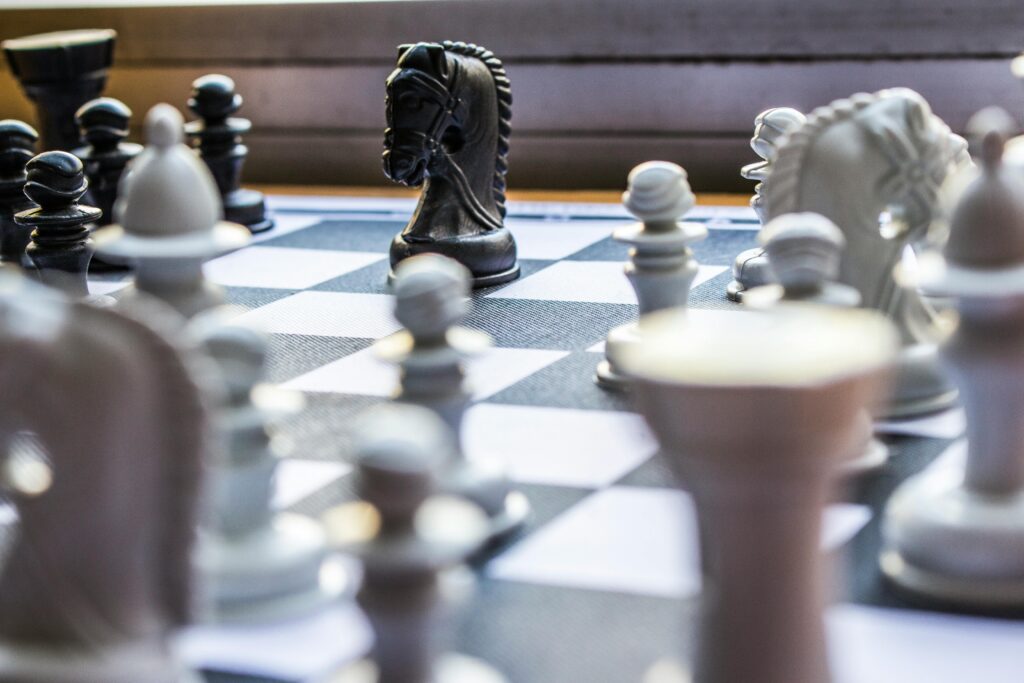
Worse, some local coaches may be good players but poor teachers. Knowing chess and teaching it are two very different skills.
Actionable Tip: Look for schools that train their coaches not just in chess, but in teaching. Ask how many students they handle per class. Ask how they personalize learning for different levels.
Limited Time, Limited Touchpoints
Offline sessions are often just once a week. That’s one hour of structured chess per week—and then nothing until next class. No practice guidance. No digital assignments. No ongoing engagement.
That’s not enough for real growth.
Compare this to online academies like Global School of Chess where students get constant feedback, access to a full digital library, 24/7 puzzle training, and bi-weekly tournaments. Your child is always in the loop.
Actionable Tip: Ask the offline coach: “What happens between sessions?” If there’s no plan to keep your child learning through the week, progress will be painfully slow.
Environment Matters (And It’s Not Always Ideal)
Offline learning environments can vary wildly. One week the chess class meets in a noisy hall. The next, it’s a cramped classroom. Lighting, temperature, distractions—these things matter, especially for young minds learning something as deep as chess.
Actionable Tip: Visit the class in person. Sit through a session. Ask yourself: “Would I feel focused and supported here if I were a child?” If not, it may be time to explore online options.
Best Chess Academies in Pudsey
Now that we’ve explored the landscape of chess training in Pudsey, let’s delve into the top five chess academies available to families in the area. Remember, this list is not just about who teaches chess. It’s about who teaches chess well, with a real heart for helping children grow smarter, more focused, and more confident.
Global School of Chess
Imagine a place where chess is taught the way math or reading is taught — step by step, with love, care, and a clear plan. That’s what Global School of Chess is. It’s not just another class. It’s a complete online academy built by experts who believe in more than just games.
At Global School of Chess, we understand that every child is unique. That’s why our program is designed to cater to individual learning styles and paces. Here’s what sets us apart:
- Structured Curriculum: Our lessons are part of a clear, level-based curriculum that ensures consistent progress. Students always know what they’re learning and why.
- Expert Coaches: Our team comprises FIDE-certified coaches who are not only skilled players but also excellent teachers. They know how to make lessons engaging and understandable for children.
- Interactive Classes: Classes are live and interactive, allowing students to ask questions, participate in discussions, and receive immediate feedback.
- Regular Tournaments: We host bi-weekly online tournaments, giving students the opportunity to apply what they’ve learned in a competitive yet supportive environment.
- Global Community: Students from over nine countries across four continents participate in our programs, fostering a diverse and enriching learning environment.
But beyond the chessboard, we focus on life skills. Our students learn patience, strategic thinking, and confidence — qualities that benefit them in school and beyond.
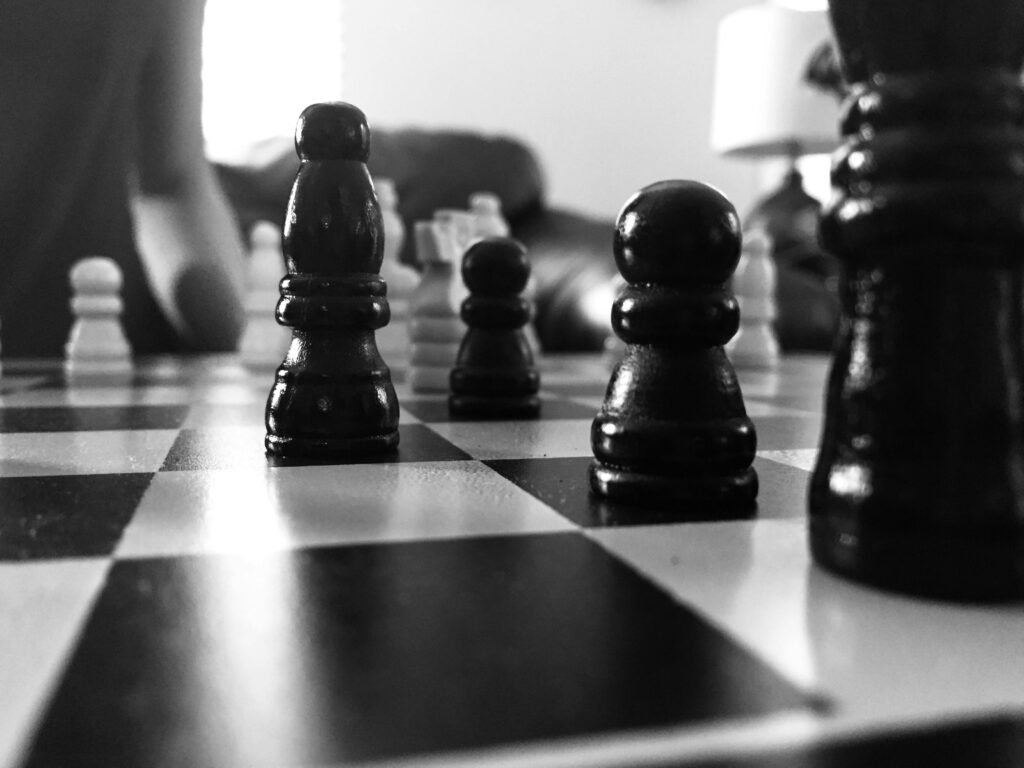
And the best part? You can experience our program firsthand with a free trial class. No commitments, just an opportunity to see how we can help your child grow. Sign up here: https://gschess.com/take-a-free-trial-class/
Pudsey Chess Club
Pudsey Chess Club is a local club that meets at the Halfway House in Stanningley, Leeds. They welcome players of all abilities and have teams that participate in the Leeds league on Wednesday evenings.
While it’s a great place for casual play and community engagement, the club doesn’t offer a structured curriculum or personalized coaching, which might limit progress for those seeking serious improvement.
Leeds Junior Chess Club
Leeds Junior Chess Club focuses on introducing children to the game of chess. They provide a friendly environment for young players to learn and enjoy the game. Coaches like David Pedro and Amanda Hipshon bring experience to the club.
However, the sessions are more informal, and there isn’t a comprehensive curriculum in place to guide students through different skill levels.
Royal Chess Coaching Academy
The Royal Chess Coaching Academy offers both online and face-to-face training for players of all ages. With over 20 years of experience, they provide lessons from tutors who are Chess Champions, Grandmasters, and International or FIDE Masters.
While they have a strong reputation, their programs may not be as accessible or tailored for beginners compared to more structured academies.
LearnChess Academy
Founded by Julian Squiers, LearnChess Academy aims to make chess accessible to every child with professional training. They focus on providing expert coaching to young minds.
While they offer quality instruction, their reach is more limited geographically, and they may not offer the same level of flexibility and global community as online platforms like Global School of Chess.
Why Online Chess Training is The Future
Online chess training isn’t just a passing trend. It’s a smart, future-ready investment in your child’s personal growth and learning. But let’s take it a step further and look at how online chess lessons prepare children for the real world—and how parents and even other learning institutions can benefit from this shift.
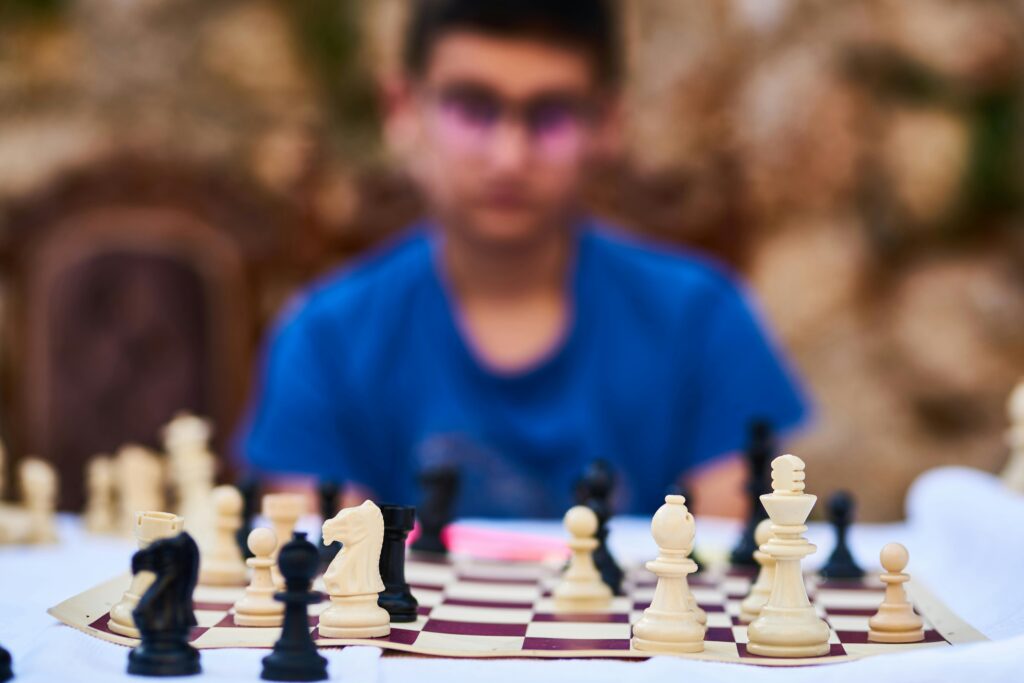
Learning Skills That Translate Beyond the Chessboard
Today’s world is digital, fast, and full of choices. Online chess classes teach kids how to think clearly, act with purpose, and adapt quickly. These are the same skills they’ll need to succeed later in school, college, and even in their future jobs.
Chess develops “mental muscles” that are priceless:
- The ability to solve complex problems with limited information.
- The discipline to plan ahead and delay gratification.
- The courage to take risks—but only when it’s smart.
Online platforms like Global School of Chess don’t just teach children to win games. We train them to make strong decisions, stay cool under pressure, and learn from every outcome.
That’s a serious advantage in the real world.
Data-Driven Growth (A Hidden Advantage)
In offline classes, progress is often tracked informally. But online chess academies use data and analytics to monitor every student’s learning curve.
This means:
- We know exactly which concepts your child struggles with.
- We tailor future lessons to fill gaps.
- We celebrate personal wins and use smart feedback to keep motivation high.
This type of learning loop just isn’t possible in old-school formats.
As a parent or even as an education business, you want to see real results—not just participation. Online training delivers proof of progress, not just hope.
The Power of Scalable Learning
One of the biggest challenges offline chess coaching faces is scaling. A single coach can only train so many students in person. That means waiting lists, overbooked classes, and uneven quality.
Online training removes that barrier.
At Global School of Chess, we can bring world-class coaching to thousands of students across the globe—without losing quality or personal touch. How? We use smart systems, carefully designed lesson plans, and coach training that ensures every child gets what they need, when they need it.
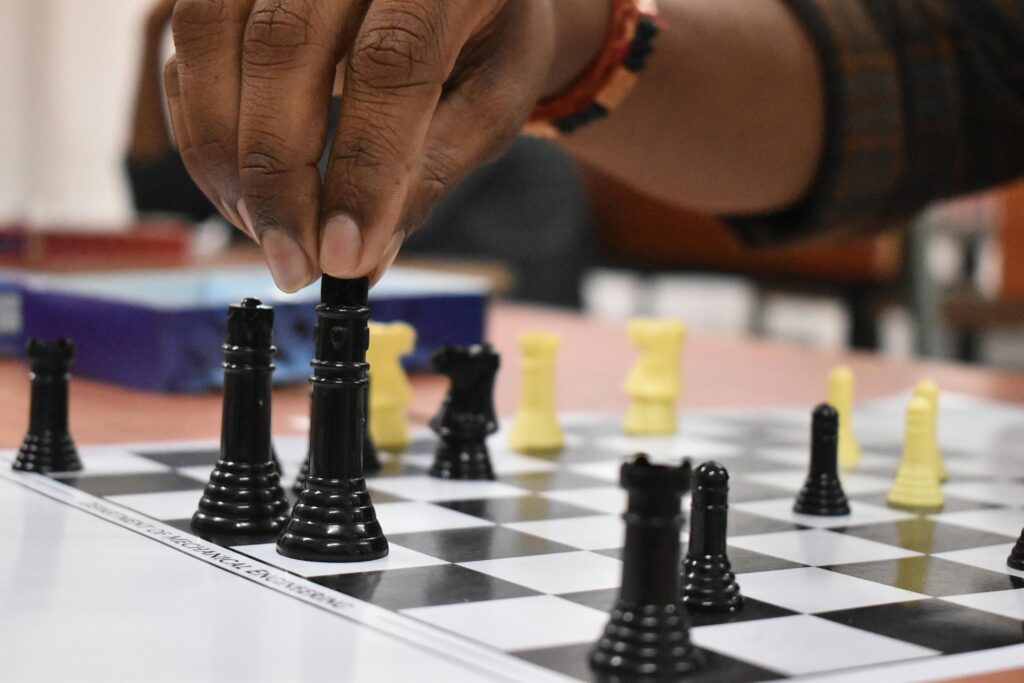
This scalability helps business-minded parents and entrepreneurs see online chess not just as education, but as a well-oiled system that can serve more people, more efficiently.
Highly Actionable Advice for Parents and Educators
If you’re a parent or an education decision-maker, here’s what you can do right now:
1. Choose a Program with a Real Curriculum:
Ask for a roadmap. Make sure each level builds on the one before. Avoid programs that jump around randomly with no end goal.
2. Look for Data Transparency:
Ask how your child’s progress will be tracked. You should receive regular updates, not just vague praise.
3. Ask for Global Exposure:
See if the academy connects kids from different countries. This gives your child a broader view of thinking styles and cultures.
4. Stay Involved, But Trust the Experts:
Online platforms make it easy to watch replays or ask questions. Use that access to stay engaged without micromanaging. Let the coach do the coaching—but stay in the loop.
5. Think Long-Term, Not Just Hobby-Level:
Chess isn’t just a game. It’s a thinking discipline. A solid program will grow with your child—from beginner to advanced—supporting them over years, not just months.
How Global School of Chess Leads the Online Chess Training Landscape
Now that you understand why online chess training is the best choice, let’s talk about the academy that’s doing it better than anyone else—Global School of Chess.
We didn’t just move chess lessons online. We reimagined how chess should be taught.
We built a full chess school from the ground up, one that works for every kind of learner. Whether your child is shy or outgoing, just starting or already strong, we help them grow. And we do it with heart, care, and a plan that actually works.

Here’s what makes Global School of Chess the #1 choice for families in Pudsey—and around the world:
We Teach with a Purpose
Every class follows a clear path. From beginner to master, each level builds on the one before it. Your child always knows what they’re learning, why it matters, and how to use it in real games.
We don’t just teach moves. We teach strategy. We teach focus. We teach how to think, plan, and act smart—not just in chess, but in life.
Our Coaches Care Deeply
Our coaches are more than experts. They are kind, patient teachers who believe in your child. They give each student personal attention, celebrate their wins, and help them learn from mistakes.
All of our coaches are FIDE-certified and trained to teach online in a way that keeps kids engaged, excited, and growing.
We Keep Kids Engaged
Our classes are fun. They’re full of games, quizzes, and challenges that keep your child smiling and learning. We even have friendly competitions every two weeks so students can test their skills and feel proud of their progress.
And we build real friendships. Our global student community means your child will meet chess buddies from around the world—kids who are just like them, learning and growing together.
We Support the Whole Family
Parents are part of the journey too. We keep you updated. We share your child’s progress. We even give tips on how to support your young player at home. You’re not just signing up for a class—you’re joining a team that cares about your child as much as you do.
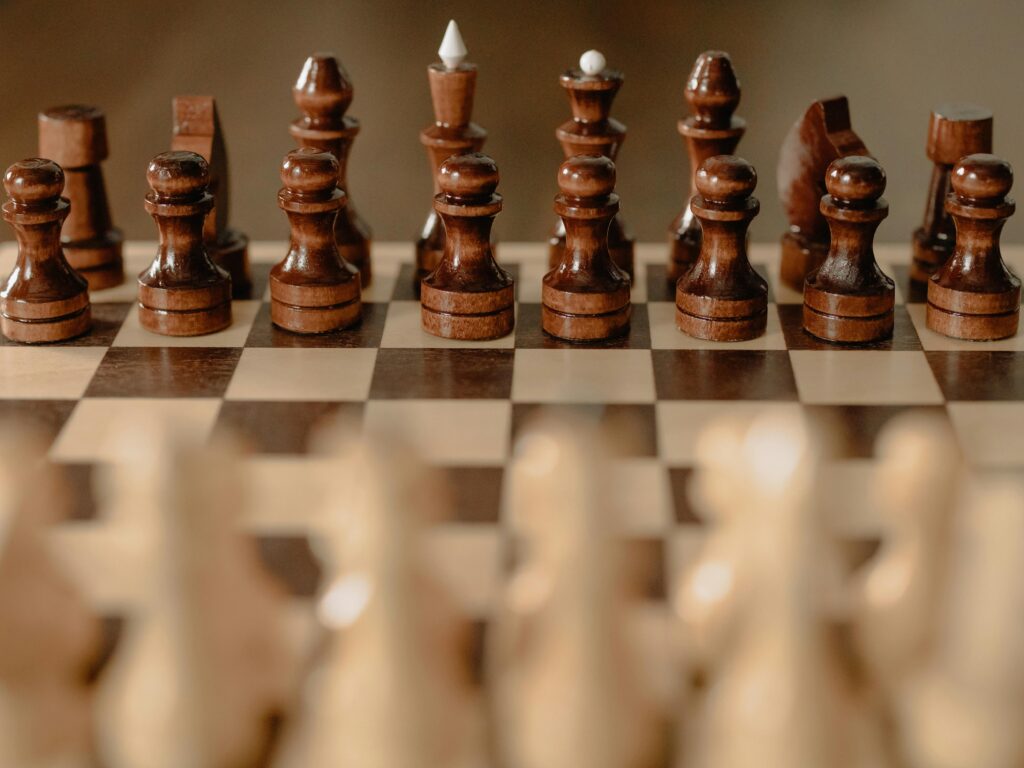
And Yes, We Offer a Free Trial
We want you to see the difference for yourself. That’s why we offer a free trial class. No pressure, no commitment—just a chance to experience what makes us special.
You can book yours today here: https://gschess.com/take-a-free-trial-class/
Wrapping It Up
Chess isn’t just about kings and queens. It’s about raising thinkers. Problem solvers. Kids who stay calm, stay focused, and see ten steps ahead in life—not just on the board.
If you’re a parent in Pudsey, Leeds, you have options. But not all options are equal.

